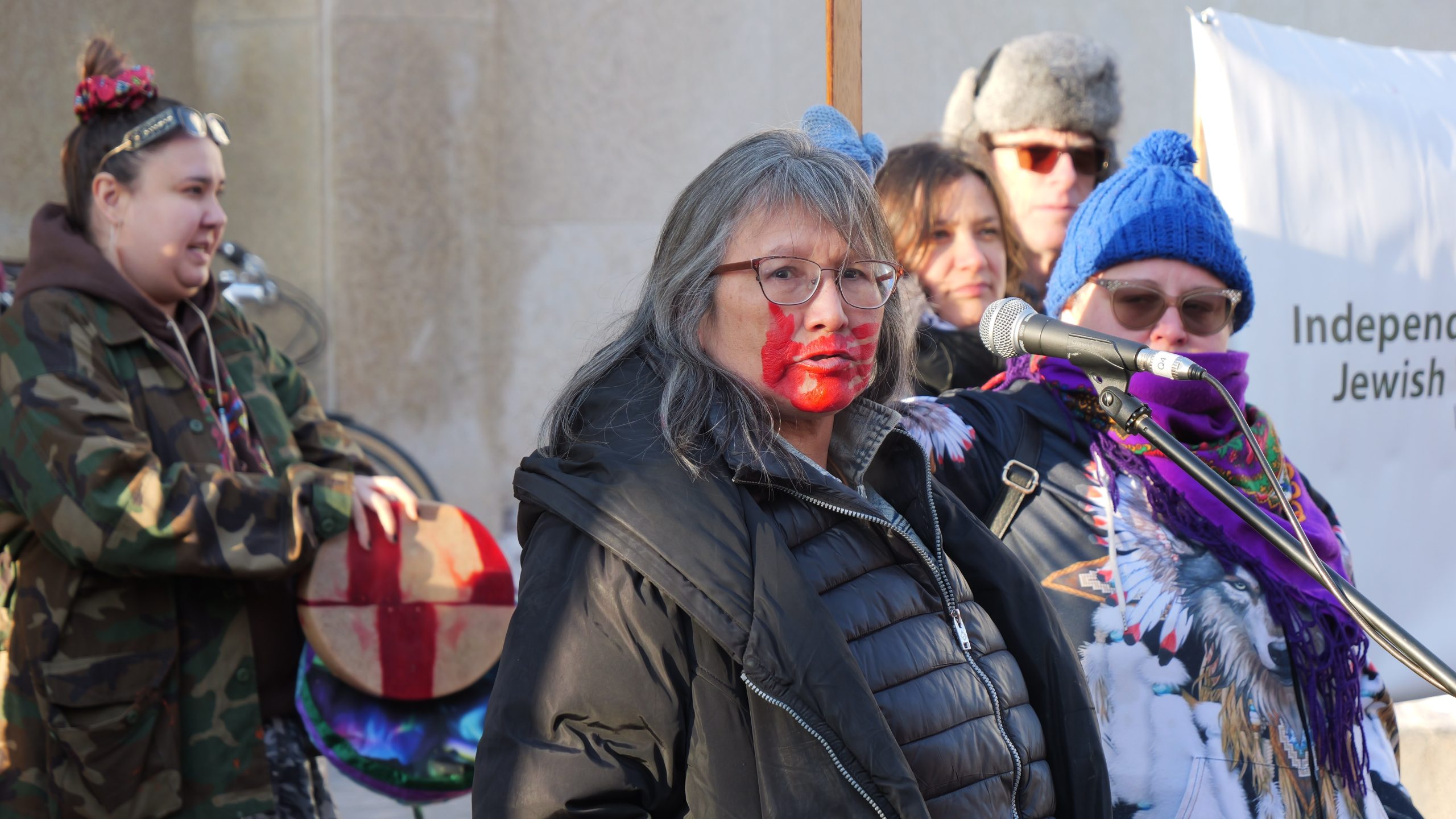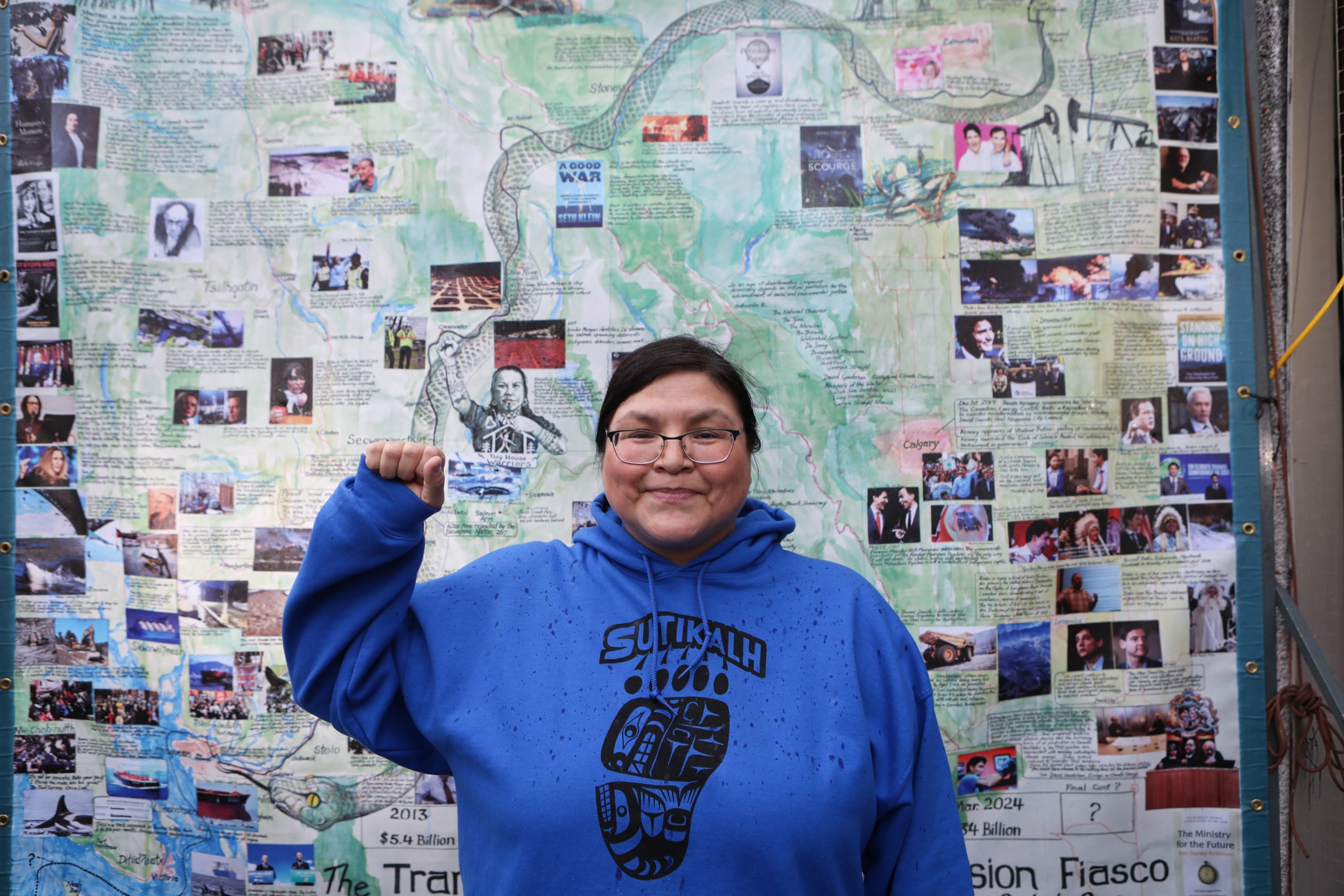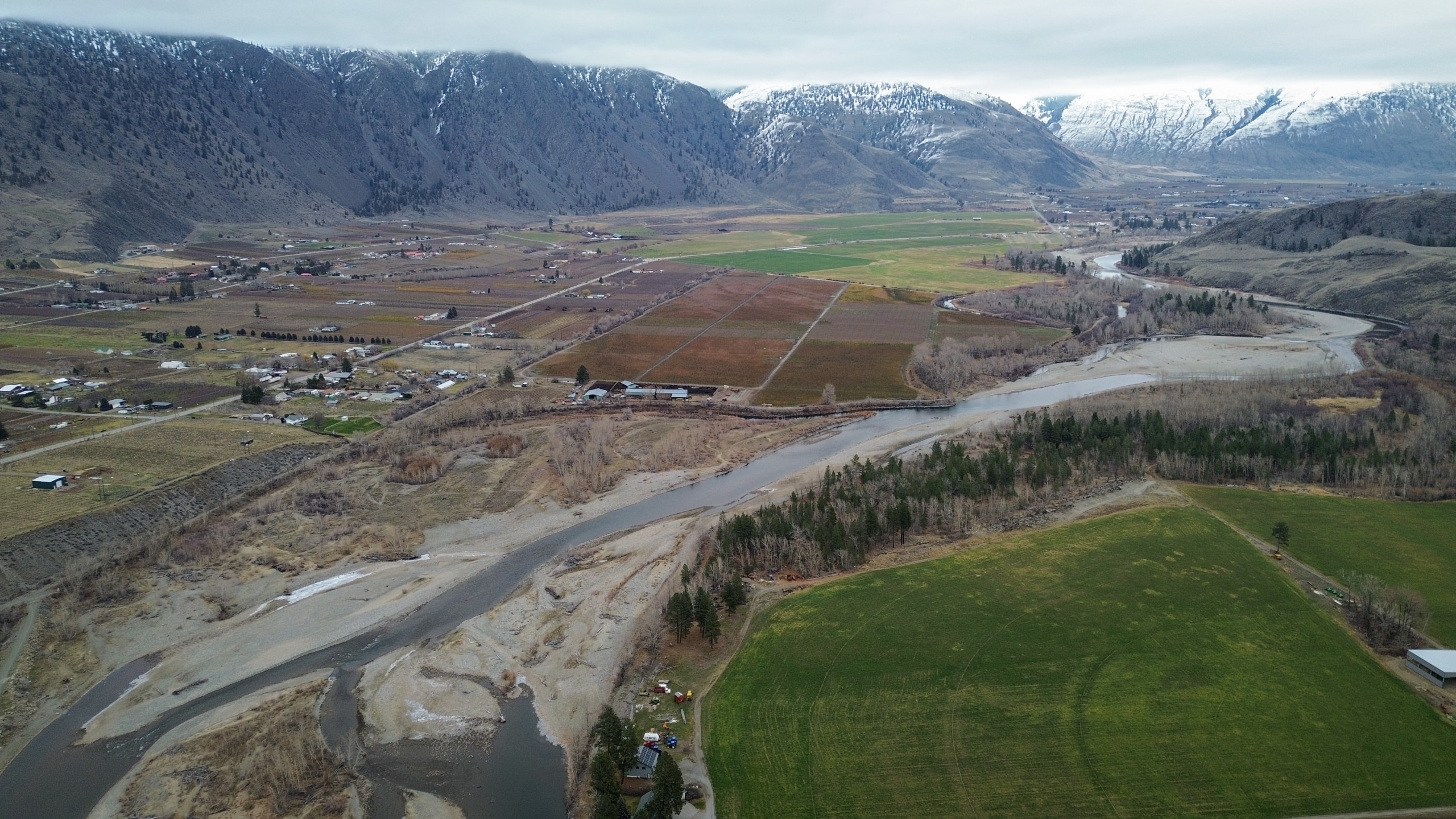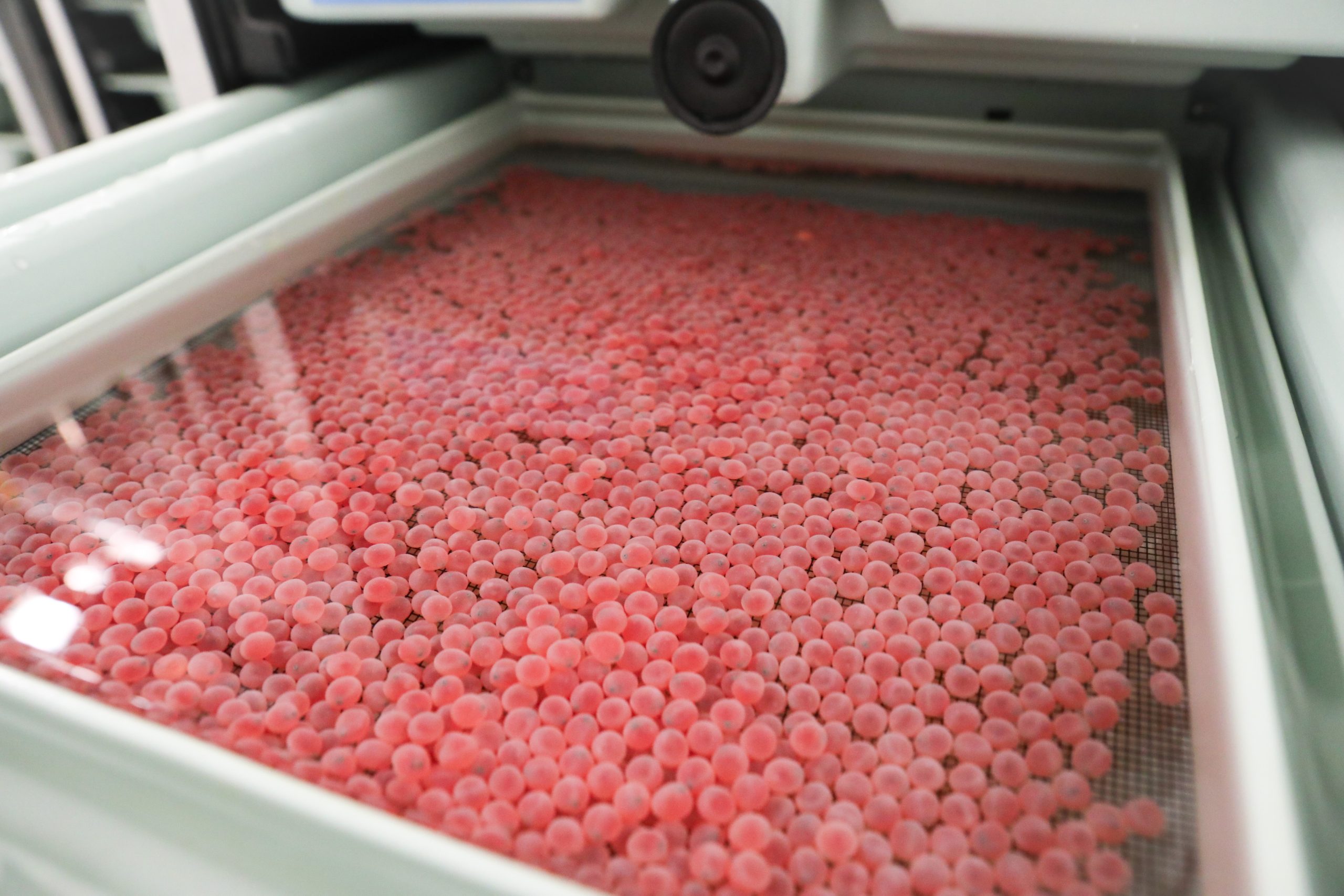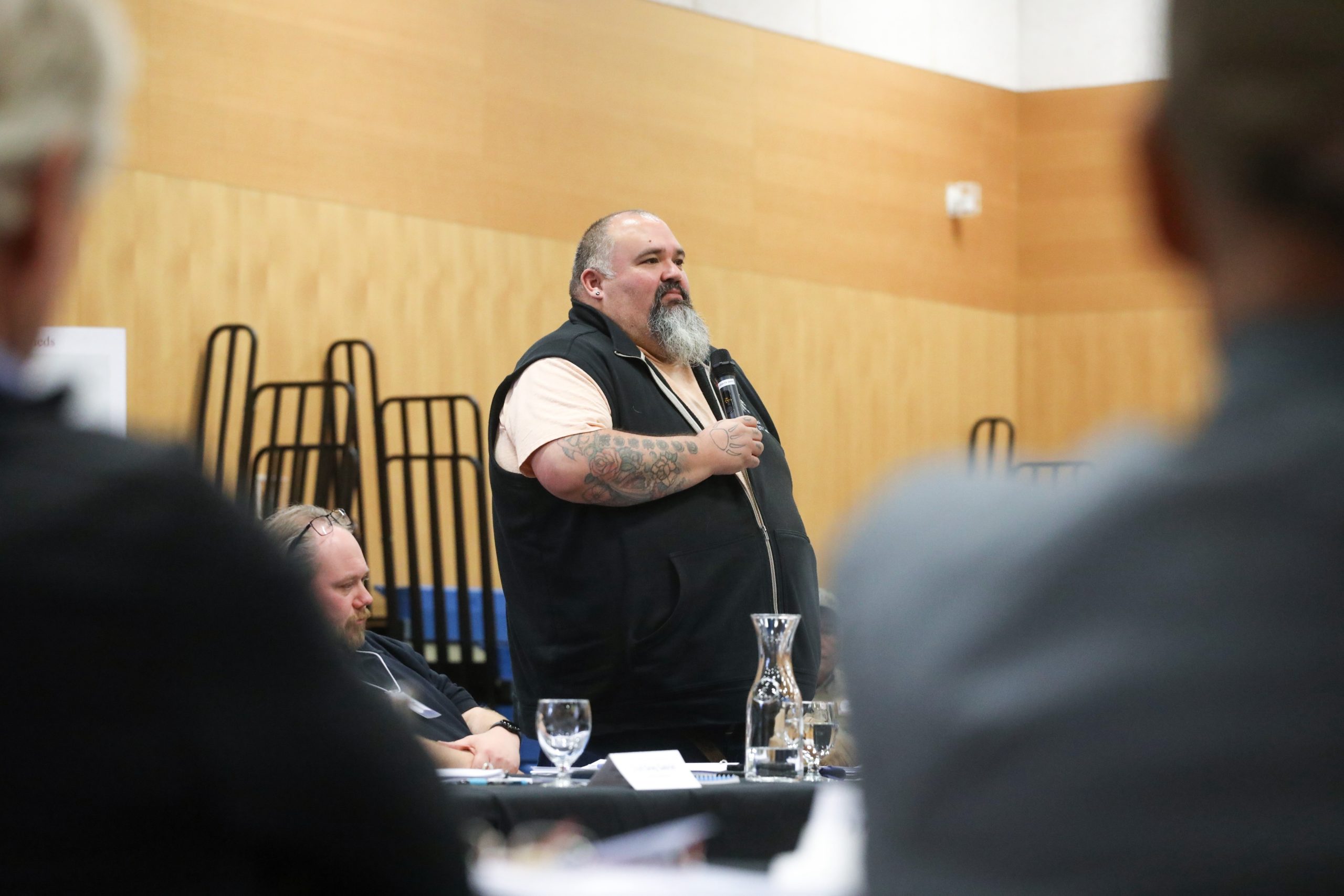smelqmix rancher’s 100-year-old apricot tree revived for community orchard
The descendants of Paul Terbasket have embarked on a multi-year project of replacing the lost Terbasket Ranch orchard.
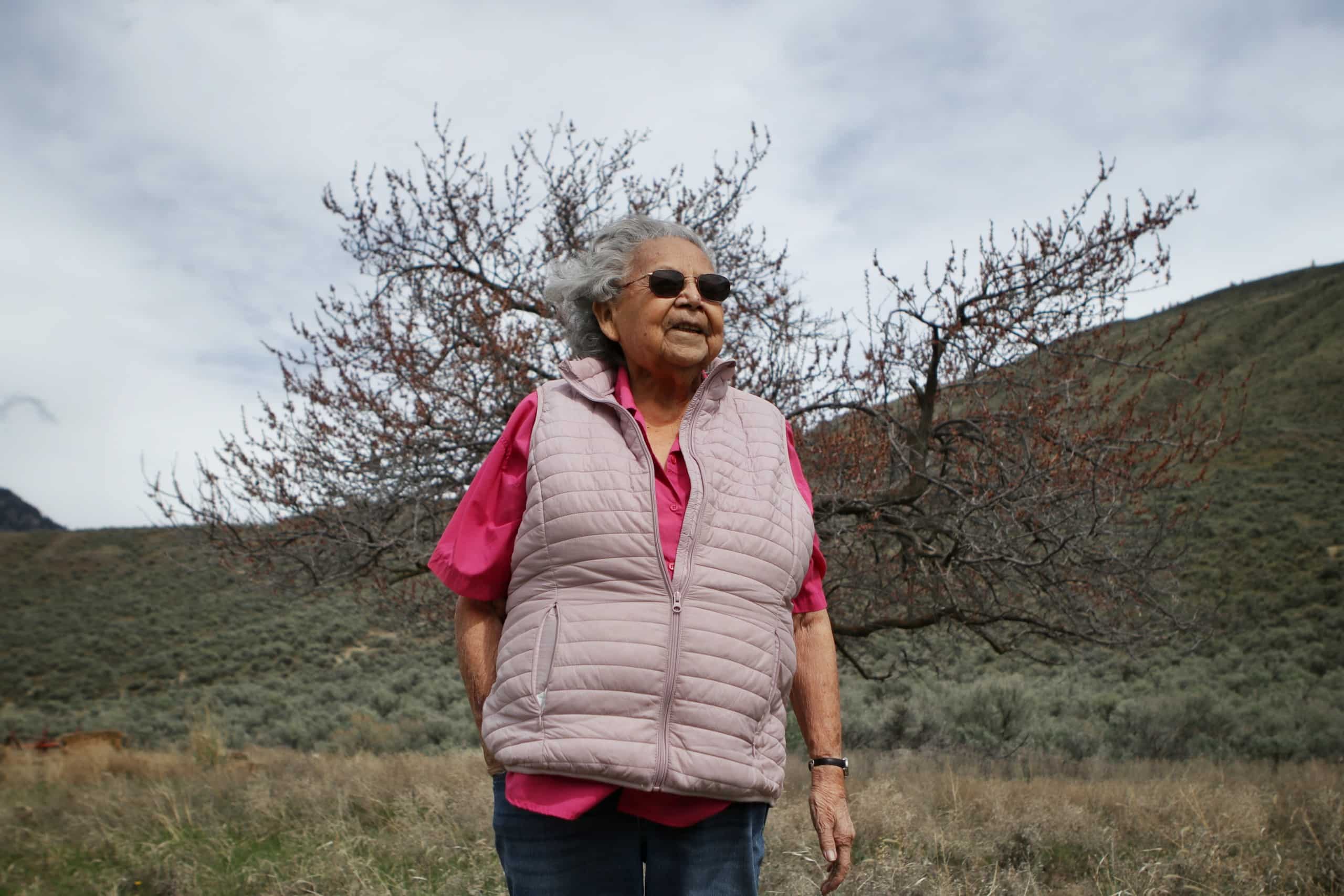
Despite numerous attempts at sabotage by settlers more than 100 years ago, a single apricot tree still remains on the late Paul Terbasket ranch.
That tree, in Cawston on syilx homelands, has stood alone until recently, when Terbasket’s descendants used it to graft 21 new trees and embark on a multi-year project of replacing the orchard that once sat on the ranch.
The ranch, nkʷrulauxʷ (place of yellow dirt), located near Blind Creek, has been with the Terbasket family since the late 1800s. Paul, a smelqmix farmer, cared for its lands for nearly 70 years, until he died in the 1950s. His granddaughter, Theresa Ann Terbasket, remembers the ranch in detail.
“He was bossy,” said Theresa Ann, a smelqmix Elder and a nsyilxcən language holder.
Theresa Ann was 10 years old when her mother died in 1943. She recalls being raised by her neighbour, who she called her adoptive mom, for two years after that.
But when her adoptive mom died in 1945, Theresa Ann remembers living and helping out on Grandpa Paul’s ranch.
“He taught me how to garden, he taught me how to aerate. Oh, that was hard work,” she said.

The ranch is where she learned how to weed, and plant corn and potatoes. She can still recall the specific vegetables in Grandpa Paul’s garden: carrots, onions and radishes.
“Whatever he liked, we had,” she said.
And on the other side of Grandpa Paul’s vegetable garden was his orchard, which had everything from apple trees to peach and apricot trees, blackcurrants, raspberries and green grapes.
“He was the only one who ate green grapes. He had to have those green grapes,” she said.
Fruit, Theresa Ann said, was Grandpa Paul’s life.

The New Water Act
Years before Theresa Ann was born, Grandpa Paul had been using water from Blind Creek to tend to his ranch, which he achieved by diverting the creek water into an irrigation ditch.
By 1909, Paul was farming 50 acres of land, according to Paul’s great-grandson, Dixon Terbasket, who is the son of Theresa Ann.
That same year, B.C. established the Water Act, which asserted “Crown ownership over water and prohibition of diverting water without a licence,” according to Kathryn Gullason, who wrote an academic paper on the issue in 2018. As a result of this new water act, “numerous Indigenous licences were improperly recorded and were often altered or cancelled by the province.”
“Even though Paul had a water licence and had been using it since the 1800s, the licence was rejected by the water controller guys,” said Dixon.

According to author and historian Harold Rhenisch, who grew up in Blind Creek with Dixon, it was the Similkameen Fruitlands Company that attempted to block Paul from using the water that he sourced from Blind Creek in 1913. Dixon said that the fruit company acquired ownership of the land on which the ranch is located in 1909, with the intention of selling it to settlers.
“The company went broke, however, and (Paul) carried on, because it was, after all, his land and water, he had never relinquished title to it, and he had been promised water long before,” Rhenisch said.
Paul continued to use the water from Blind Creek until 1923, when the Similkameen Fruitlands Company returned and took him to court. Paul refused to comply and ended up serving jail time for contempt of court for watering his orchard.
Theresa Ann said she feels a deep understanding for his decisions.
“I think because of who I am, I would’ve thought just like he did – I would’ve said ‘No… it’s my water. It doesn’t belong to you. I’ve lived here all my life. You can’t take something away that’s naturally given.’”
Theresa Ann doesn’t know how long Paul was in jail for, and she figures that her dad, Michel, helped run the ranch while Paul was away.
“I wouldn’t know because (Michel) never talked about it,” said Theresa Ann. “He didn’t get along with his dad.”
According to Theresa Ann, Grandpa Paul resumed his life at the ranch after being wrongfully convicted. He died at his ranch home in 1957. Despite all the attempts to stop Grandpa Paul from using the water from Blind Creek, Theresa Ann said that he was never evicted from the property.
“He was there all his life,” she said.

After Grandpa Paul died, the ranch went to Theresa Ann’s cousin, who was also named Paul, and he continued to manage it. Today, six generations on, nkʷrulauxʷ operates as Blind Creek Ranch where some members of the large family are running cattle and hay. A small portion of the land is leased out to a vineyard.
In 1963, member growers of the B.C. Tree Fruits Association, who were white and from Keremeos, cut down whatever was remaining of Paul’s orchard, according to Rhenisch. Their reasoning was that the trees “were a source of disease, essentially of codling moth, an admittedly terrible pest that the white farmers had brought into the valley in packing materials around 1923.”
One apricot tree from Paul’s old orchard remains standing after all these years.

Life After Paul
When conducting research for his book Okanagan Okonogan, which explores the history of the Okanagan Valley beyond the colonial border between Canada and the U.S., Rhenisch said that he stumbled upon an article that detailed the injustices against Paul Terbasket.
While speaking at the Ryga Arts Festival in Summerland in 2018, Rhenisch shared what he had learned about Paul and how he was jailed for watering his ranch. It just so happened that Paul’s great-great-granddaughter, Kelly Terbasket, was in the audience.
“(Kelly) came up to me (afterwards) and she asked me if I would come to her place and tell the story again because she hadn’t known all this story,” said Rhenisch. “She figured that there would be others in her family in the Simalkameen who didn’t know the story as well.”
Rhenisch was invited and attended a storytelling session in Blind Creek, where he reconnected with Dixon.
Dixon said they hadn’t seen each other in at least 25 years.
“I was listening to him and then I was telling him what I wanted to do,” said Dixon. “I wanted to start building a farm here on this property – the Band land, the Lower Similkameen Band.”

The pair started brainstorming, and Rhenisch brought up the idea of growing new apricot trees from Paul’s original tree, and having youth name them.
“Once they taste the apricots, they can give it a name. Then there’s some ownership, and who knows where it’ll go!” said Rhenisch.
By 2019, the project of growing a community orchard in an area right below the Lower Similkameen Band office was well underway. Dixon lives adjacent to the proposed community orchard and has already started planting fruit trees on his property. He and Rhenisch combined their horticulture expertise and grafted 21 new apricot trees from Paul’s original on the ranch. Some of the trees were sold or given away, but a few remain under Dixon’s care on his land.
In total, Dixon and Rhenisch have grown 151 trees – which include apple, plum, peach and apricot – to replace Paul’s lost orchards. Many of these trees have already been planted for the new orchard.
While part of the goal of the orchard is to correct an old wrong and honour Paul’s tree, Rhenisch said that he hopes that the trees grown from Paul’s original tree will continue to provide apricots for another 100 years.
“To pass on something living that was intended to be broken. That’s pretty nice. You don’t get to do that everyday,” he said.
For Dixon, he’s looking forward to the food security that the future orchard will provide to the community, and says there are no plans to commercialise the project.
“We’re gonna have some food to eat. Nothing else,” said Dixon. “The idea behind the apricots is that they’re a beautiful fruit.”



Correction: This story has been updated from a previous version to include additional information about the current state of the ranch, and to correct the fact that the ranch continues to operate after Grandpa Paul’s death, at the hands of other family members. IndigiNews apologizes for the error.
Author
Latest Stories
-
Indigenous rights defenders say they’ll ‘not stay silent’ after anti-protest bylaw defeated in ‘Winnipeg’
Advocates remain concerned after forcing withdrawal of proposed buffer zones and ‘nuisance’ protest ban


